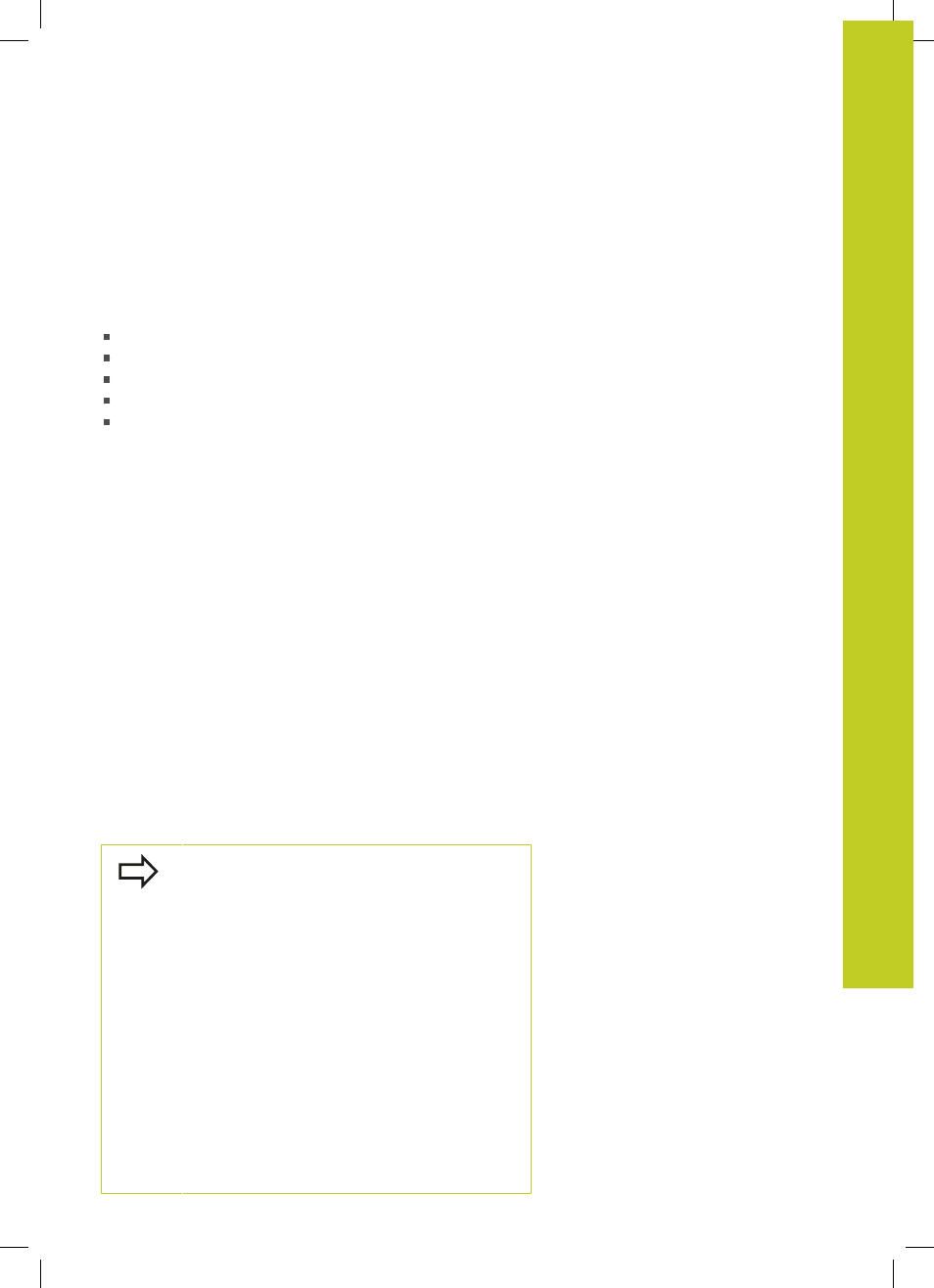2 rectangular pocket (cycle 251), Cycle run, Please note while programming – HEIDENHAIN TNC 128 (77184x-02) User Manual
Page 429: Rectangular pocket (cycle 251)

RECTANGULAR POCKET (Cycle 251)
17.2
17
TNC 128 | User's Manual HEIDENHAIN Conversational Programming | 5/2014
429
17.2
RECTANGULAR POCKET (Cycle 251)
Cycle run
Use Cycle 251 RECTANGULAR POCKET to completely machine
rectangular pockets. Depending on the cycle parameters, the
following machining alternatives are available:
Complete machining: Roughing, floor finishing, side finishing
Only roughing
Only floor finishing and side finishing
Only floor finishing
Only side finishing
Roughing
1 The tool plunges the workpiece at the pocket center and
advances to the first plunging depth.
2 The TNC roughs out the pocket from the inside out, taking the
overlap factor (parameter Q370) and the finishing allowance
(parameters Q368 and Q369) into account.
3 At the end of the roughing operation, the TNC moves the tool
away from the pocket wall, then moves by the set-up clearance
above the current plunging depth and returns from there at rapid
traverse to the pocket center.
4 This process is repeated until the programmed pocket depth is
reached.
Finishing
5 If finishing allowances are defined, the tool plunges the
workpiece at the pocket center and moves to the plunging
depth for finishing. The TNC first finishes the pocket walls, in
multiple infeeds if so specified.
6 Then the TNC finishes the floor of the pocket from the inside
out.
Please note while programming:
Pre-position the tool in the machining plane to the
starting position with radius compensation
R0. Note
parameter Q367 (position).
The TNC automatically pre-positions the tool in the
tool axis. Note the
2nd set-up clearance Q204.
The algebraic sign for the cycle parameter DEPTH
determines the working direction. If you program
DEPTH=0, the cycle will not be executed.
At the end of the cycle, the TNC returns the tool to
the starting position.
At the end of a roughing operation, the TNC
positions the tool back to the pocket center at rapid
traverse. The tool is above the current pecking depth
by the set-up clearance. Enter the set-up clearance
so that the tool cannot jam because of chips.
At the end, the TNC positions the tool back to the
set-up clearance, or to the 2nd set-up clearance if
one was programmed.
